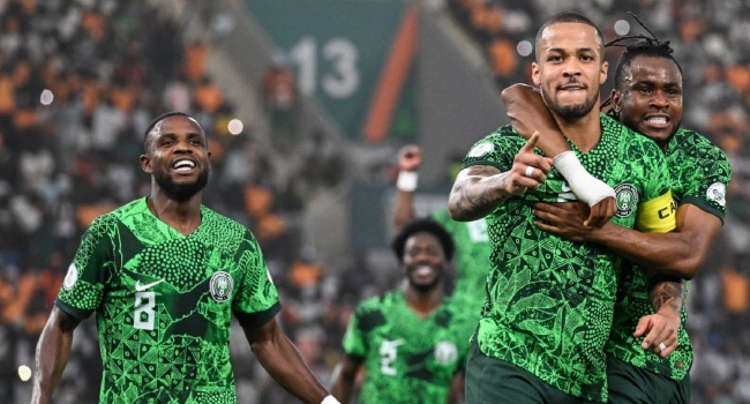The outcome of the 2023 Africa Cup of Nations (AFCON) semi-final clash between Nigeria and South Africa, which saw the Super Eagles triumph over the Bafana Bafana, has engendered a collective euphoria that transcends the mere confines of sports.
The controversy over VAR’s late decision and the eventual victory of the three-time African champions presented a profound moment of unity for a nation often fragmented by economic, political, and social divides. This report seeks to analyse the technical implications of the match and appraise the communication opportunities that could have been harnessed by the Nigerian government under President Bola Tinubu’s leadership.
The scenario observed on match night highlights the deep emotional investment Nigerians have in football. The government’s communication team could funnel this unifying spirit into national discourse, potentially improving rapport with citizens, fostering patriotism, and enhancing support for governmental policies. Herein lies the technical nuance – translating a moment of sporting triumph into a platform to revitalise nationalistic fervor.
Key opportunities presenting themselves in the wake of the game include:
- Empathetic Engagement: Beyond joining in the celebration, official government spokespersons could acknowledge the emotional rollercoaster experienced by Nigerians, thereby demonstrating empathy and solidarity with the populace.
- Hope and Resilience Messaging: In post-match communications, the government could draw parallels between the team’s resilience and the Nigerian spirit, encouraging citizens to remain hopeful and resilient amidst economic challenges.
- Showcasing Tangible Government Action: Leverage the heightened attention to highlight progress in government-led initiatives, outlining how these efforts mirror the teamwork and determination displayed on the football pitch.
- Call to Unity: The unity evidenced by supporters of the national team could be channeled into a broader call for patriotism and cooperation in addressing Nigeria’s critical challenges.
However, the lack of robust engagement from government communicators during this pivotal period could be viewed as a missed opportunity. The spontaneous burst of national pride was a rare gem that may have been appropriated for the following technical applications:
- Reactive Strategy: While official government spokespersons immediately reacted to the victory, which is commendable, they missed an opportunity to subtly tie in national objectives and aspirations in their communications.
- Storytelling Technique: Employing narratives that align the footballing success story with the visage of a triumphant Nigeria overcoming its current difficulties.
- Social Media Interaction: Active engagement through social media platforms, initiating dialogues, and creating hashtags to sustain the momentum built around the game and foster a sense of national camaraderie.
The key lessons to be distilled for government communicators include the necessity for agility in responses, the power of empathetic communication, and the utilisation of current events to foster national unity. The moments following the contentious VAR decision and the subsequent victory were ripe for crafting a unifying message that catalysed patriotic sentiment.
Finally, the government of President Tinubu may have missed an advantageous window to deepen its connection with Nigerian citizens. Future engagements should be marked by proactive, empathetic, and unifying communications that leverage national moments of pride and joy. The football narrative is a metaphor for the potential success of Nigeria – a story of overcoming adversity, which, when well-narrated, could serve as a powerful impetus for nation-building.
Femi Aderibigbe is an Outreach Specialist and a Development Studies Scholar. Femi is a tech-savvy administrator and development practitioner with about 15 years of professional experience in government relations, nonprofit/programme management, grant-making and development communications. He is adept at working with a wide variety of community demographics to formulate beneficial programmes and issue resolutions. He serves as the Board Chair for ImpactHouse Centre for Development Communication, a tech-driven nonprofit driving a uniform understanding of development messages in Africa.
Photo source: Issouf Sanogo/AFP







